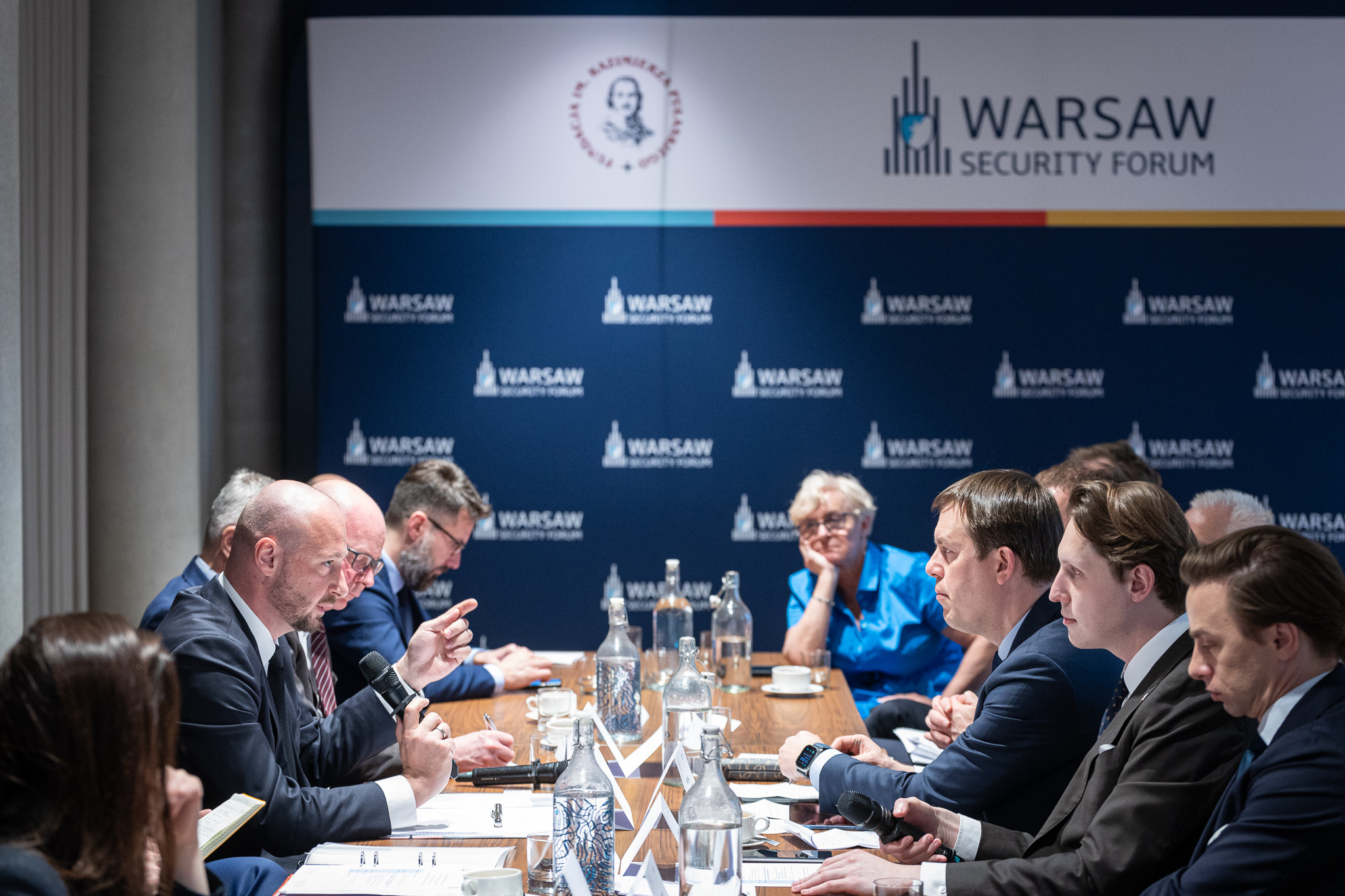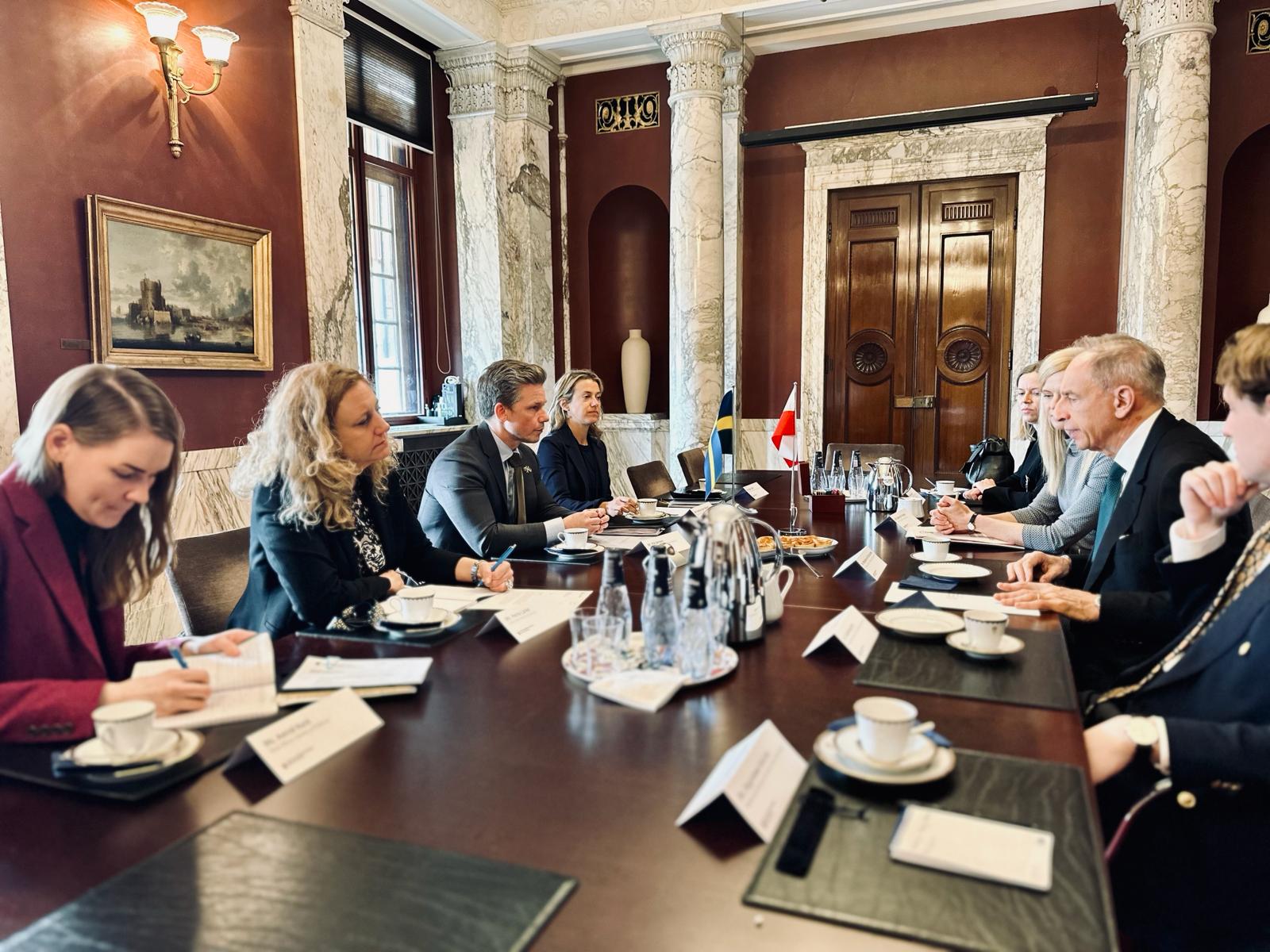WSF2019 | BREAKOUT SESSION: Significance Overlooked or Ignored? Western Balkans
The panelists of this breakout session were: Mr. Dobran Božič – Deputy Minister of Foreign Affairs of Slovenia; Daniel Fried – Distinguished Fellow at the Future Europe Initiative and Eurasia Center, Assistant Secretary of State for European and Eurasian Affairs of the United States (2005 – 2009); Mr. Maciej Popowski – Deputy Director-General for Neighborhood Policy and Enlargement Negotiations at the European Commission; Mr. Péter Szijjártó – Minister of Foreign Affairs and Trade of Hungary.
The panel was moderated by Mr. Bart Szewczyk, Adviser on Global Affairs at the European Political Strategy Centre of the European Commission. It aimed to determine the interests, expectations and future of the Western Balkans, as well as identifying its great international players.
In Minister Szijjártó’s opinion, the process of enlarging the European Union to encompass the Western Balkans has been the best political and economic development in the region. Thus, the enlargement itself should happen as soon as possible. Minister Božič agreed with Minister Szijjártó. He stated that the process of European integration could have happened even faster if the Western Balkans countries respected the rule of law and fought against corruption and fake news. Maciej Popowski also defended the importance of the EU enlargement, and said that the “Western Balkans, as a region, is clearly back on the agenda”. However, he reminded the audience that it is a long process, and that there is a lack of enthusiasm from the rest of Europe for it. Finally, Daniel Fried talked about the necessity of cooperation between the United States and the European Union in the region to thwart the growing influence of China and Russia.
Last but not least, the panelists answered questions from the audience. These questions concerned the current relationship between Kosovo and Serbia, the conditions of entry of those countries into the European Union, and respect for democratic values.
SHARE THIS STORY ANYWHERE YOU LIKE
SHARE THIS STORY ANYWHERE
WSF Weimar Triangle Parliamentary Delegation Visit to Washington D.C.
On 15-17 of April 2024, the Casimir Pulaski Foundation and the Warsaw Security Forum have dispatched an advocacy mission to Washington D.C. to bolster support for the passage of the critical U.S. $60 billion aid package to Ukraine. The senior leadership of the Casimir Pulaski Foundation was joined by three members of national parliaments from Germany, France and Poland.
Poland-Sweden Strategic Dialogue
The Head of the National Security Bureau and the Swedish National Security Adviser met in Warsaw: Poland-Sweden Strategic Dialogue Highlights Shared Commitment to Regional Security.
High-level delegation to Stockholm
Last week Warsaw Security Forum organized a high-level delegation to Stockholm, to hold ministerial-level meetings. Their aim was to discuss the security situation in the region and the preparations for this year's edition of the #WSF2024.



